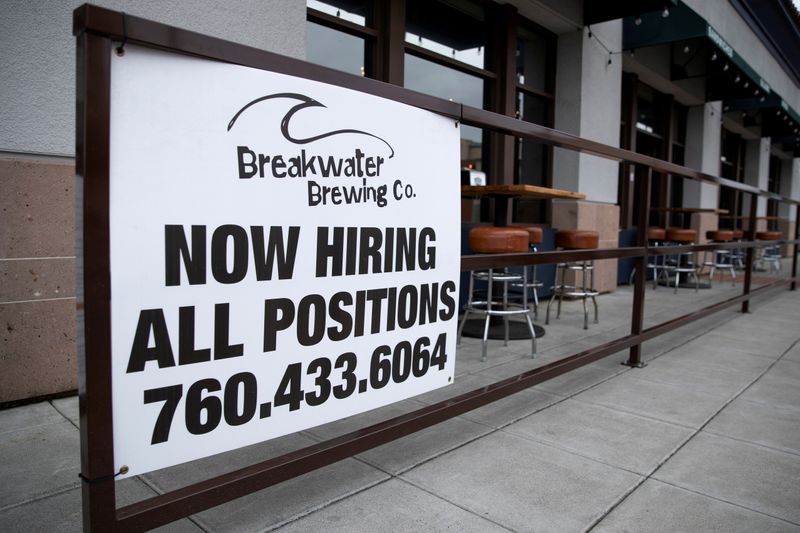By Geoffrey Smith and Peter Nurse
Investing.com -- The bond market continues to flash warning signs about inflation, with the 10-year Treasury yield hitting its highest since late 2018 overnight. The U.S. employment will shed light on whether inflation is weakening the trend in job growth, or whether it’s drawing more people back into the labor market. Elon Musk is a big step closer to completing his acquisition of Twitter and oil prices rise again as the EU tries to remove a stumbling block to its Russian oil embargo. Here’s what you need to know in financial markets on Friday, 6th May.
1. Bonds still flashing warning signs
The bond market continues to flash warning signs after another highly volatile day left markets torn between the twin fears of inflation and recession.
The U.S. 10-year yield, which can be taken as a rough proxy for short-term rates over the next decade, hit a new 3½ year high of 3.10% overnight, reflecting perhaps the realization of how much liquidity conditions will change later in the year when the roll-off of the Fed’s balance sheet accelerates.
The 2-year Treasury yield, however, was less volatile and is set to end the week roughly where it started it. That suggests that market expectations for Fed rates in the next two years haven’t changed much, for all of the volatility witnessed in the last two days.
The overall impression is one of high uncertainty exacerbated by thin liquidity, against a backdrop of rising fear of ‘stagflation’ setting in.
That fear was in evidence on Thursday in response to the Bank of England’s rate hike cum growth downgrade, and the risk of the Eurozone heading the same way is growing by the day. German industrial orders and production both fell sharply in March, while Bank of France Governor Francois Villeroy de Galhau warned that a weak euro risked worsening the inflation picture still further.
2. Payrolls growth set to slow a bit
The U.S. economy is expected to have added another 391,000 jobs in the month through mid-April, a slight slowdown from the previous month’s 431,000.
The official labor market report, due at 8:30 AM ET, is also set to show the jobless rate ticking down to 3.5% of the workforce. However, perhaps the most important numbers in the report will be the participation rate and average hourly earnings.
Record high vacancies and a shortage of workers are allowing wages to grow at rates well above what is consistent with low inflation. As such, any further acceleration in wage growth is likely to revive the fears of higher interest rates that have battered markets this week. Any sign of inactive people returning to the workforce will, by contrast, ease such fears. The participation rate has risen by nearly 1 percent in the last five months as pandemic savings were drawn down, especially by lower income groups.
The New York Federal Reserve President John Williams will speak at 9:15 AM ET, which may add some color and analysis to the report.
3. U.S. stocks set to extend losses at open
U.S. stock markets are set to extend their losses at the open, after enduring their worst day since the first wave of the pandemic on Thursday.
By 6 AM ET (1000 GMT), Dow futures were down 40 points, or 0.1%, while S&P 500 futures were down 0.3%, and Nasdaq 100 futures were down 0.6%.
Stocks likely to be in focus later include electric vehicle group Lucid (NASDAQ:LCID), which posted a narrower loss than expected after the close on Thursday, as well as Live Nation Entertainment (NYSE:LYV), which reported solid profits as the concert and sports business rebounded. EOG Resources (NYSE:EOG) also joined the ranks of oil and gas companies enjoying the uplift from crude prices.
Under Armour (NYSE:UAA) also has better-than-expected numbers out this morning, while insurance giant Cigna (NYSE:CI) reports before the open.
4. Musk finds backers for Twitter acquisition
Elon Musk’s bid for Twitter (NYSE:TWTR) looks closer to becoming reality after the Tesla (NASDAQ:TSLA) CEO announced he had found another $7.1 billion in equity backing from a range of wealthy investors. Some, such as Prince Al Waleed bin Talal of Saudi Arabia, are existing shareholders who will keep their stock, while others such as Oracle (NYSE:ORCL) CEO Larry Ellison and bitcoin exchange Binance, will buy for the first time.
Venture capital companies Sequoia and Andreessen Horowitz are also due to inject cash, along with Fidelity and Brookfield Asset Management.
The net effect is to reduce the amount that Musk has to borrow against his Tesla stock by half, significantly reducing the risk of forced liquidations. Tesla stock inched down in premarket despite the news, while Twitter stock held Thursday’s gains to trade at $50.09 by 6 AM ET, less than 10% below Musk’s offer price.
Separate reports suggested that Musk has agreed to take over as CEO temporarily if his bid succeeds.
5. Oil firms as EU acts to remove hurdle to embargo
Oil prices stayed well bid as the European Union tried to remove the biggest stumbling block to its proposed embargo on Russian oil and refined products.
Bloomberg reported officials as saying the EU will exempt give Hungary, Slovakia and Czechia up to two more years to comply with the ban, owing to their disproportionately high dependence on Soviet-era pipelines.
The sanctions package can only come into force with unanimous support. Hungarian Prime Minister Viktor Orban is pressing for a five-year exemption, according to various reports.
By 6 AM ET (1000 GMT), U.S. crude futures were up 2.3% at $110.69 a barrel, while Brent crude was up 2.2% at $113.39.
